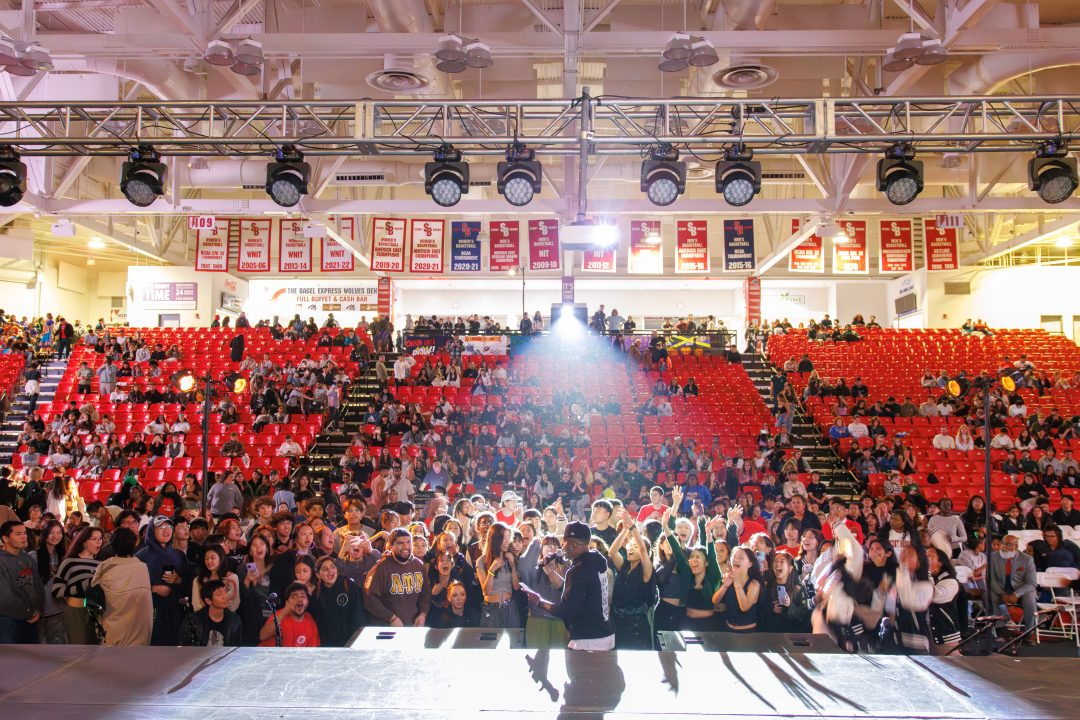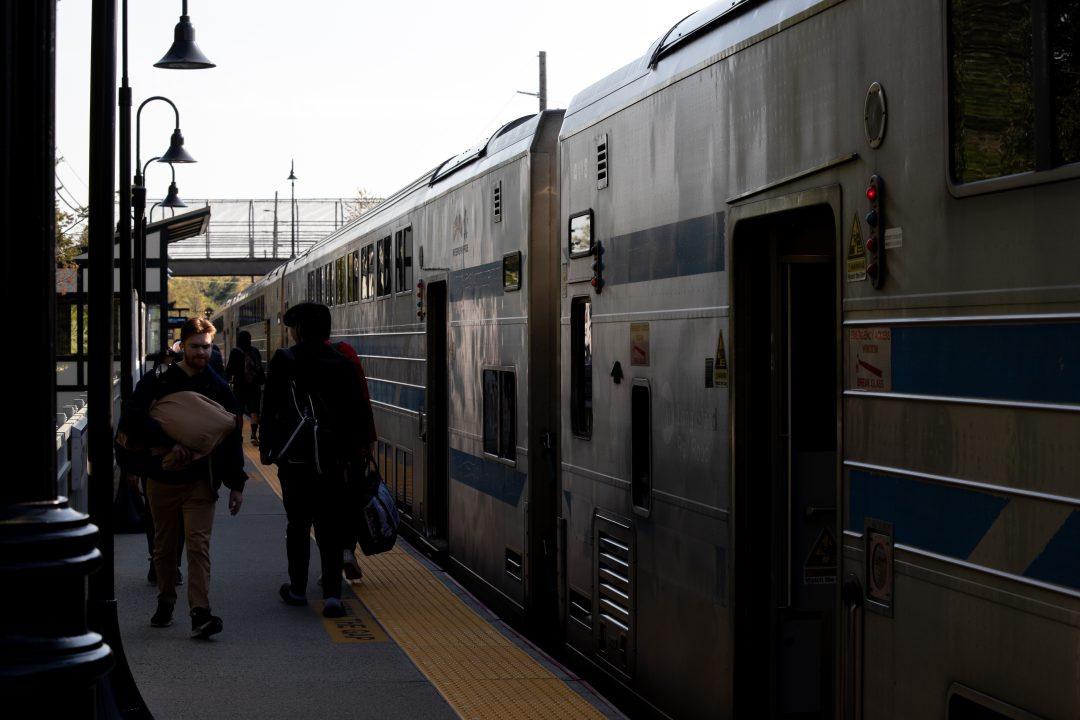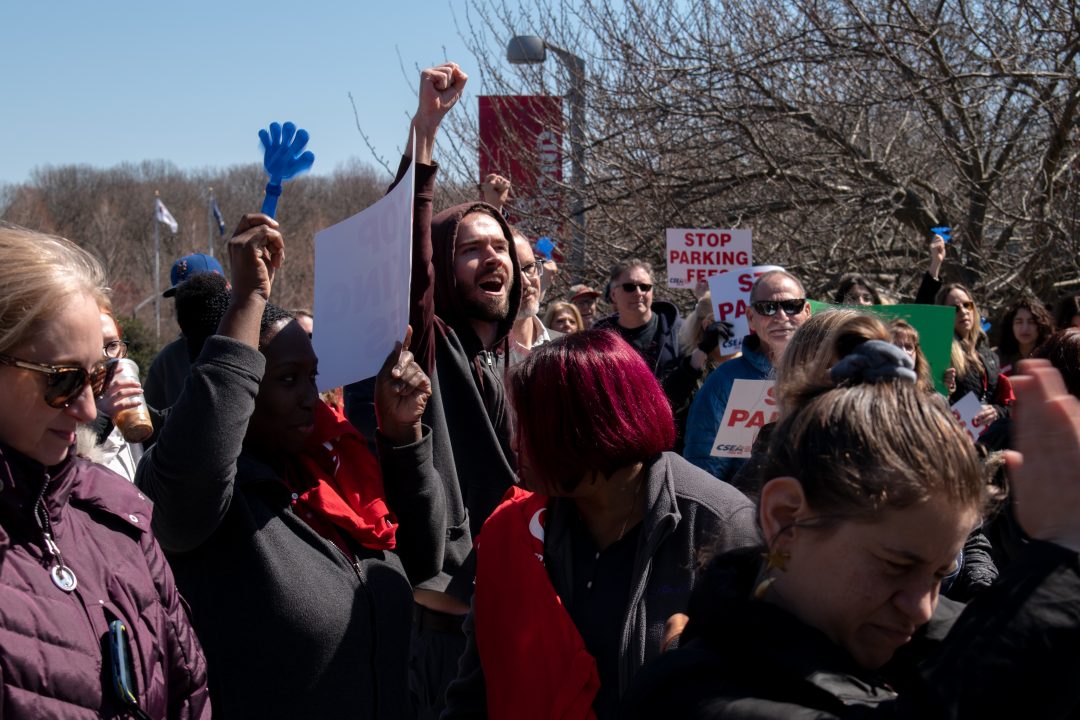
Campus Residences has gutted end hall lounges in O’Neill, Irving, Langmuir and Benedict Halls to create new dormitory spaces for the next academic year.
The O’Neill Hall Council created a petition and signature form to protest the removal of the end hall lounges. The petition, published on Jan. 31, advocates to end the removal of the lounges. It received 153 signatures from residents and some commuters across campus. Those who signed the petition expressed how the end hall lounges were heavily used for studying, taking online exams, socializing and personal matters such as phone calls.
“The end-hall lounge serves a vital purpose in enhancing students’ educational and community experience,” the petition said. “It is the obligation of the Department to uphold its commitment to enriching students’ experience in their living community.”
The closure of Ammann and Gray Halls last semester due to flooding created an increase in demand for campus housing for the next academic year.
“It was determined that the rarely utilized end hall lounges in H and Mendelsohn communities would be converted to student rooms to better accommodate this demand and reduce the number of temporary triple rooms, while minimizing disruption to current residents,” Catherine-Mary Rivera, assistant vice president for Campus Residences, said about why the change occurred.
Without the new dormitory spaces, Campus Residences anticipated having to implement a radius policy. This means that residents whose home address is within a certain radius from the University would be excluded from housing. “With the addition of the 120 new spaces and some of the buildings currently offline becoming operational Fall 2022, we’re currently anticipating about 200 temporary triples for Fall 2022,” Sonia Garrido, director of marketing and communications at Stony Brook, said.
But O’Neill Hall Council President Michelle Shum, Treasurer Dao Xuan Yu Yu and Residence Hall Association Senator James Lam believe the end hall lounges provide a vital refuge for students in the building.
“We are basically fighting to preserve the space we consider a sanctuary,” Shum said. “Of course, residents heavily rely on these lounges, and we think it is contradictory to what Campus Residences’ pledge is, which is accommodation and accessibility for all students.”
“The end hall lounges provide everyone in the whole community a place where if our roommate’s sleeping, we can have our online class, job interview, RA interview or online test in that area,” Yu said. “Also, that area provides us a private space if we need to do a family call.”
The change surprised residents like Lam, as they were not told they were losing the area until construction in the lounge started.
“It was so jarring for returning students to see that some familiar spaces got changed,” Lam said.
According to Lam and Yu, a notice posted on the doors of the end hall lounges said that they would be closed, and told students to use either the main lounges, kitchen or the collaborative learning area.
According to Rivera, the community kitchens in each of the five halls (one per hall), two Collaborative Learning Areas (COLAs) and the H Community Center in James Hall are additional available spaces in H and Mendelsohn Communities for recreation, studying and more. Rivera also said that additional desks and couches will be added to Benedict South, Benedict North, Irving Main, O’Neill Main and James Main Lounges.
“Students in the H and Mendelsohn communities have been informed of alternative spaces they can use for studying and collaboration, and seating capacity has been increased in other locations in the same communities,” Rivera said. “In addition, once Mendelsohn Center is restored, it will eventually be another space available to students.”
However, Yu, and other members of the O’Neill Hall council disagree, and believe that this action could set a precedent across campus. “Most importantly, we believe if our hall gets taken, yours could be next.” Yu said.
















